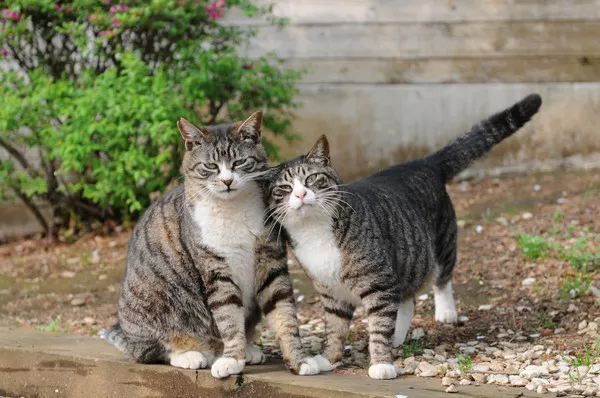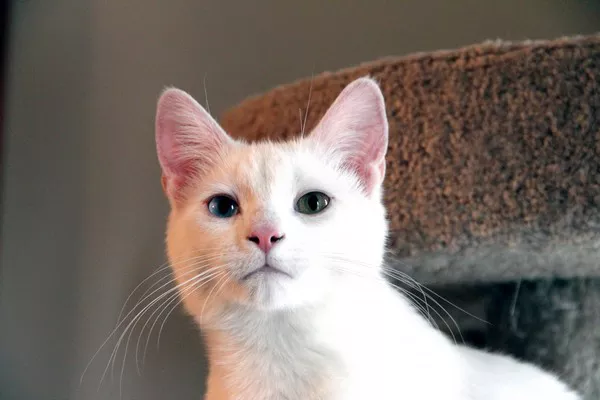Garlic, a staple ingredient in many human cuisines, has sparked debate among pet owners regarding its safety for feline consumption. While hailed for its potential health benefits in humans, garlic’s toxicity to pets, particularly cats, has raised concerns within the veterinary community. In this comprehensive examination, we delve into the complexities of whether cats can eat garlic, exploring the potential risks and benefits associated with this aromatic herb.
Understanding Feline Physiology
Before delving into the specifics of garlic, it’s essential to understand the unique physiology of cats. As obligate carnivores, cats have evolved to thrive on a diet primarily composed of animal-based proteins and fats. Their digestive systems are finely tuned to extract essential nutrients from meat, making them ill-equipped to process certain plant-based foods.
Garlic Composition and Nutritional Profile
Garlic, scientifically known as Allium sativum, is renowned for its distinct flavor and potential health benefits for humans. Rich in sulfur compounds like allicin, garlic exhibits antimicrobial properties and is believed to offer cardiovascular and immune system support. Additionally, garlic contains vitamins and minerals, including vitamin C, vitamin B6, and manganese.
However, despite its nutritional value for humans, garlic poses significant risks to feline health due to its toxic properties.
The Risks: Understanding Garlic Toxicity in Cats
Hemolytic Anemia: Garlic contains compounds, particularly thiosulfate derivatives, that can cause oxidative damage to red blood cells in cats. When ingested in significant quantities, these compounds can lead to a condition known as hemolytic anemia, characterized by the destruction of red blood cells and potential organ damage.
Gastrointestinal Upset: Cats have sensitive digestive systems, and the consumption of garlic can lead to gastrointestinal upset, including vomiting, diarrhea, and abdominal pain. The irritant properties of garlic can disrupt the delicate balance of the feline gut microbiome, leading to digestive disturbances.
Heinz Body Formation: Garlic toxicity in cats can result in the formation of Heinz bodies, which are abnormal structures within red blood cells. These structures impair the ability of red blood cells to carry oxygen effectively, leading to oxygen deprivation and tissue damage.
Organ Damage: Prolonged exposure to garlic or ingestion of large quantities can result in severe organ damage, particularly to the liver and kidneys. Cats lack certain enzymes necessary for metabolizing garlic compounds, making them more susceptible to toxicity.
Safe Ways to Avoid Garlic Toxicity in Cats
Given the potential risks associated with garlic consumption in cats, it’s crucial for pet owners to take proactive measures to prevent exposure. Here are some guidelines to ensure your cat‘s safety:
Avoid Feeding Garlic: The most effective way to prevent garlic toxicity in cats is to avoid feeding garlic altogether. Refrain from offering any foods or supplements containing garlic, including garlic powder, garlic-infused oils, or garlic-flavored treats.
Check Ingredient Labels: When selecting commercial cat foods or treats, carefully review the ingredient labels to ensure they do not contain garlic or any other members of the Allium family, such as onions or leeks.
Educate Yourself: Familiarize yourself with common foods and household items that may contain garlic, such as certain baby foods, soups, sauces, and herbal supplements. Be vigilant in keeping these items out of reach of your cat.
Consult with Your Veterinarian: If you suspect your cat has ingested garlic or is exhibiting symptoms of garlic toxicity, seek immediate veterinary care. Early intervention is crucial in preventing complications associated with garlic ingestion.
See Also: 5 Best Kitten Foods of 2024
The Bottom Line
While garlic may offer potential health benefits for humans, it poses significant risks to feline health and should be strictly avoided in cat diets. The potential for garlic toxicity, including hemolytic anemia and organ damage, far outweighs any perceived benefits.
As responsible pet owners, it’s our duty to prioritize the well-being of our feline companions by providing them with a balanced and species-appropriate diet. By understanding the risks associated with garlic consumption and taking proactive measures to prevent exposure, we can safeguard our cats’ health and ensure they lead long and healthy lives.
Consulting with a veterinarian is always recommended when making dietary decisions for your cat, as they can provide tailored guidance based on your cat’s individual health status and nutritional needs. With proper care and attention, we can create a safe and nurturing environment for our beloved feline friends, free from the dangers of garlic toxicity.

























